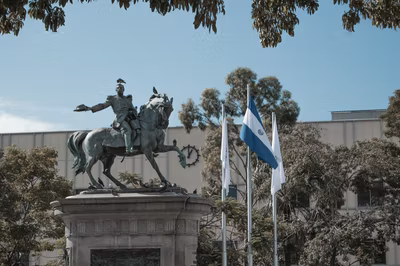Global Trends in Blockchain Adoption: A Worldwide Perspective
Written on
The Evolving Landscape of Blockchain Technology
Blockchain technology has experienced an unprecedented surge in adoption over the past decade, particularly during the COVID-19 pandemic. Numerous nations are now establishing their positions on how blockchain, especially cryptocurrencies, will influence their economic and social frameworks. While the primary focus has been on major economies like the United States, China, Japan, the United Kingdom, and the European Union, it's essential to explore how other nations are integrating this technology and how a global ecosystem of blockchain utilization may emerge.
The announcement by the U.S. on March 9th regarding the formation of a task force to explore blockchain and cryptocurrency highlights the increasing significance of this technology. Understanding the global landscape of blockchain support is vital for informed investment and the development of decentralized applications (dApps).
Countries Leading the Charge in Blockchain Implementation
Countries at the forefront of blockchain innovation include:
- Bahamas
- China
- Japan
- Philippines
- South Korea
- United Kingdom
- Singapore
- United States
- Australia
According to the report "Blockchain for Government: Use Cases and Analysis" by Clavin et al. (2020), these nations are rapidly advancing their blockchain initiatives and have substantial funding backing their efforts. Several have already launched their own blockchain networks, with government support encouraging further exploration.
China, Nigeria, and the Bahamas have introduced Central Bank Digital Currencies (CBDCs), yet none of these countries recognize decentralized cryptocurrencies as legal tender, with China and Nigeria actively prohibiting their use.
Despite China's recent restrictions on Bitcoin mining and transactions involving decentralized cryptocurrencies, the country continues to engage in blockchain research and has implemented a CBDC along with a Blockchain Service Network (BSN). This BSN supports 24 blockchains, including Tezos, NEO, Nervos, EOS, IRISnet, and Ethereum, thereby allowing these networks to service Chinese users and affirming China's leadership in internal blockchain adoption.
Promoting Cryptocurrency as Legal Tender

El Salvador stands out as the sole nation that recognizes Bitcoin as legal tender, while Ukraine is in the process of adopting cryptocurrencies as legal payment methods, spurred by significant crypto donations during its ongoing conflict with Russia. Although speculation surrounds Paraguay and Venezuela potentially following suit, there is currently no verified confirmation of such moves.
Countries Engaged in Blockchain Dialogue
An analysis of global discussions surrounding blockchain, particularly through social media metrics, reveals the following nations frequently involved in conversations about blockchain:
- Vietnam
- Nigeria
- India
- Philippines
- China
- United States
The nations most likely to back blockchain initiatives and technology research include:
- United States
- China
- United Kingdom
- Australia
- Ukraine
Access to blockchain infrastructure varies significantly across countries. For instance, Singapore imposes minimal restrictions on blockchain and cryptocurrency usage, while the United States has more stringent regulations on transactions and exchanges.
The Future of Blockchain Development and Advancements

The data presented showcases an increasing global interest in blockchain technology. While El Salvador is the only country to declare Bitcoin as legal tender, many nations are exploring blockchain's potential. Countries like Venezuela are experimenting with cryptocurrencies to alleviate financial instability associated with their national currencies.
In the Middle East, the United Arab Emirates and Lebanon are leading in blockchain and cryptocurrency innovations. The UAE has established regulatory 'sandboxes' to foster experimentation in blockchain applications. Meanwhile, the European Union, while cautious about cryptocurrency payments, is investigating blockchain's advantages for sectors such as supply chain management.
Singapore's regulatory environment encourages blockchain innovation, and Australia is actively pursuing a roadmap to position itself as a global blockchain hub.
The benefits of blockchain technology are extensive, offering enhanced resource tracking, asset management, and network security. This interest is likely to amplify, leading to significant investments in blockchain markets.
Conclusion
Blockchain technology is rapidly gaining traction worldwide. While some nations embrace cryptocurrency use in everyday transactions, others are focused on understanding and developing the technology before wider implementation. Although the future of blockchain support remains uncertain, it is evident that global adoption has commenced, and new applications will continue to emerge.
This article was part of a collaborative investigation into crypto regulation by Standard DAO and Distributed. Follow StandardDAO for more insights.
References
The first video title is What Will Drive Global Institutional Crypto Adoption? | Wyoming Blockchain Symposium. This discussion delves into the factors influencing global institutional interest in cryptocurrencies and blockchain technology.
The second video title is Kevin O'Leary Lays the Blueprint for Crypto Mass Adoption. In this video, Kevin O'Leary outlines his vision for the future of cryptocurrency and the necessary steps for mainstream adoption.